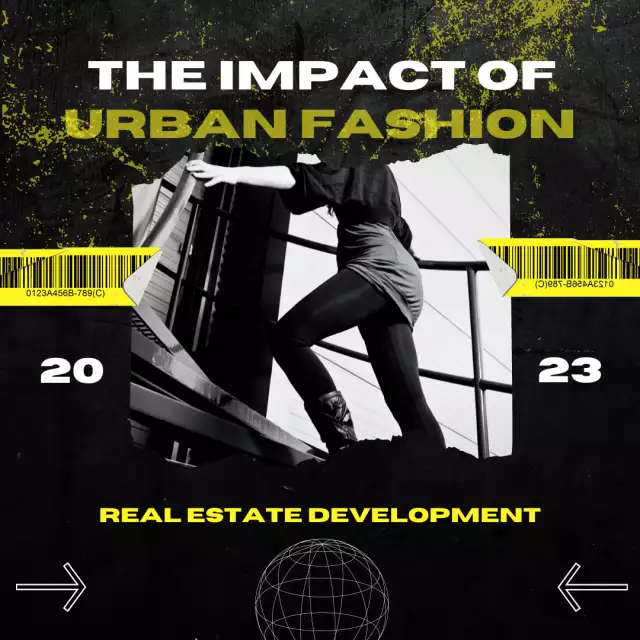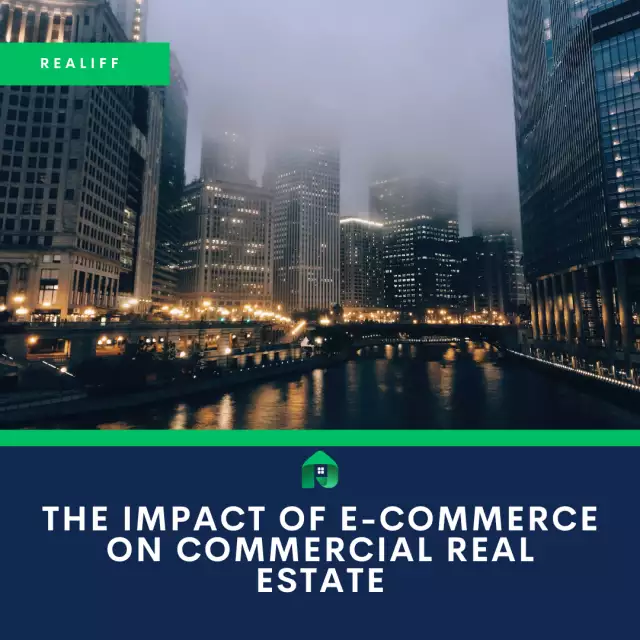The Impact of Urbanization on Real Estate Development
Urbanization is an all-encompassing global phenomenon that has brought about a fundamental transformation in the landscape of cities, leaving an indelible impact on various sectors, including the realm of real estate development . As populations continue to flock to urban areas in ever-increasing numbers, the consequential surge in demand for housing, infrastructure, and economic opportunities has become more pronounced. Recognizing the significance of this intricate relationship, this comprehensive article aims to explore and illuminate the multifaceted interplay between urbanization and real estate development. By delving into the effects of urbanization on housing demand, infrastructure development, economic factors, environmental considerations, and regulatory policies, we seek to unravel the intricate tapestry of urban growth and its profound implications for the real estate sector . In doing so, we hope to shed light on the complex dynamics at play and provide valuable insights into how urbanization can be harnessed as a catalyst for sustainable and inclusive urban development. With a keen focus on understanding the evolving dynamics of this dynamic relationship, we aim to guide policymakers, developers, and stakeholders toward informed decisions that foster vibrant, livable, and resilient urban environments in the face of ongoing urbanization trends.
Urbanization and Housing Demand
The rapid pace of urbanization has sparked an unprecedented surge in housing demand, driven by the relentless influx of individuals seeking enhanced prospects within cities. As urbanization sweeps across the globe, the need for suitable housing options has reached unprecedented levels. Urbanization wields a profound influence on housing demand , fundamentally reshaping lifestyles and altering preferences. Urban dwellers often prioritize convenient access to a wide array of amenities , ranging from bustling shopping centers to top-tier educational institutions and comprehensive healthcare facilities. Consequently, real estate developers have responded by erecting residential complexes and soaring high-rise buildings, striving to accommodate the ever-growing urban population. Despite these efforts, the issue of providing affordable housing in the face of rapidly urbanizing areas looms large, posing a considerable challenge that demands immediate attention. The quest for a sustainable solution to this predicament remains imperative, as stakeholders endeavor to strike a balance between burgeoning housing demands and the pressing need for affordability in our evolving urban landscapes.

Infrastructure and Urbanization
The process of urbanization brings about an inherent need for the expansion and enhancement of infrastructure to meet the evolving demands of urban areas. Efficient transportation networks, such as well-designed road systems, robust highways, and integrated public transit systems, become essential components in connecting the diverse parts of a city and facilitating seamless mobility for residents and businesses alike. As urbanization continues to unfold, ensuring accessibility within urban areas becomes increasingly crucial, fostering connectivity and facilitating the efficient flow of people, goods, and services. Concurrently, urban planningassumes a pivotal role in accommodating the demands of real estate development by strategically determining the layout and allocation of land for residential, commercial, and industrial zones. By harmonizing urban planning and real estate development, cities can create harmonious urban environments that strike a balance between housing, businesses, and public spaces. Moreover, upgrading and expanding infrastructure to keep pace with rapid urbanization and subsequent real estate growthis not only imperative but also indispensable for sustainable urban development. By investing in robust transportation systems, advanced utility networks, and state-of-the-art facilities, cities can ensure the seamless functioning of urban areas, optimize resource utilization, and enhance the overall livability and quality of life for their residents.
The Impact of Cryptocurrency on the Real Estate Market
Economic Factors and Urbanization
Urbanization serves as a dynamic catalyst for economic growth, offering a plethora of opportunities for real estate development. The gathering of people in urban areas acts as a magnet for businesses, resulting in a surge of commercial development. The consequential demand for goods and services stimulates economic activity and job creation, fostering a thriving urban economy. The profound influence of urbanization is also keenly felt within real estate markets , where property values fluctuate in response to the level of urban development and the desirability of locations. As cities evolve and expand, the investment potential within the real estate sector grows exponentially, attracting both domestic and foreign investors. Moreover, urbanization paves the way for entrepreneurship to flourish, as the concentration of resources, talent, and market demand fosters an environment conducive to business innovation and growth. This symbiotic relationship between urbanization and economic development ultimately contributes to the overall well-beingand prosperity of the region, generating economic opportunities, enhancing the standard of living, and creating a vibrant and sustainable urban landscape.
Environmental Considerations
While urbanization brings about a multitude of economic and social benefits, it concurrently presents a range of environmental challenges that demand attention and proactive solutions. The rapid and extensive development associated with urbanization frequently results in the loss of natural habitats , leading to a decline in biodiversity and ecological imbalance. Additionally, the increased energy consumption and resource utilization associated with urbanization contribute to environmental degradation, including air and water pollution. However, in recognition of these challenges, sustainable urban development practices have emerged as an effective response. Green building initiatives have gained prominence, emphasizing the utilization of renewable energy sources, energy-efficient designs , and sustainable materials to reduce the environmental footprint of urban real estate. Furthermore, the concept of sustainable urban planning aims to strike a delicate balance between the need for urbanization and the imperative of environmental conservation and preservation. By integrating green spaces, implementing smart infrastructure, promoting public transportation, and adopting sustainable waste management practices, cities can create a harmonious coexistence between urban development and the natural environment. Achieving this balance is essential for the creation of sustainable, resilient, and livable cities that minimize their ecological impact while providing a high quality of life for their residents.
The Ultimate Guide to Home Buying: A Complete Buyers Checklist from Search to Close
Regulatory and Policy Issues
Government regulations and policies exert a profound influence on real estate development within urban areas, shaping the physical and functional aspects of cities. Zoning laws play a pivotal role in determining land-use patterns, designating specific areas for residential, commercial, industrial, and recreational purposes. These regulations guide the spatial organization of urban development, ensuring compatibility and preventing conflicting land uses. Urban planning policies are crucial in managing growth and maintaining the livability of cities. They encompass comprehensive master plans, development guidelines, and design standards that dictate the layout, density, and form of urban areas. By strategically planning for infrastructure, transportation networks, and public spaces, urban planning policies aim to create well-connected, accessible, and sustainable urban environments. Furthermore, affordable housing policies assume critical significance in addressing the housing affordability challenges that arise from rapid urbanization. Governments often implement measures such as inclusionary zoning, rent control, and subsidy programs to promote the availability of affordable housing options for low-income individuals and families. Additionally, public-private partnerships have gained prominence as effective mechanisms for urban real estate development. These collaborations between government entities and private developers leverage the expertise and resources of both sectors to finance, plan, and execute large-scale development projects, addressing the complexities and challenges associated with urban growth. By harnessing the power of public-private partnerships, governments can tap into private-sector innovation, expertise, and funding, thereby facilitating the efficient and sustainable development of urban areas. Overall, government regulations, zoning laws, urban planning policies, affordable housing initiatives, and public-private partnerships collectively shape the landscape of real estate development in urban areas, ensuring orderly growth, livability, and the provision of essential infrastructure and services for vibrant and thriving cities.
The Benefits of Green Homes and Energy Efficiency
How Can, Realiff.com as an Innovative Real Estate Online Platform, be Implemented in Urbanization?
Realiff.com , as an innovative real estate online platform connecting agents, buyers and sellers, lenders, and contractors, can play a significant role in facilitating and supporting urbanization. Here are some ways in which Realiff.com can be implemented in the context of urbanization:
Streamlining Property Transactions
Realiff.com, as an innovative real estate online platform, has the potential to revolutionize property transactions in urban areas by offering a centralized platform where agents, buyers, and sellers can seamlessly connect. In the face of rapid urbanization, where the real estate market is dynamic and fast-paced, Realiff.com provides a comprehensive solution to streamline the process of property transactions. Through its platform, Realiff.com enables agents to showcase property listings, complete with detailed information, high-quality images, and even virtual property tours. This empowers buyers to explore properties from the comfort of their own homes, gaining a realistic sense of the space before physically visiting the property. The platform also facilitates secure and efficient communication channels between agents, buyers, and sellers, allowing for swift negotiations , documentation exchanges, and contract finalizations. By providing a user-friendly interface and leveraging advanced technologies , Realiff.com enhances the accessibility and transparency of property transactions, particularly in rapidly urbanizing areas where demand is high. With its centralized platform, Realiff.com simplifies the process of finding and transacting properties, promoting efficiency, convenience, and informed decision-making. Whether individuals are seeking their dream home, an investment property, or commercial spaces in urban areas, Realiff.com emerges as a valuable resource, revolutionizing the way property transactions are conducted and supporting the growth and development of urban real estate markets.
Matching Buyers and Sellers
In urban areas experiencing rapid growth, the real estate market can be complex and dynamic. Realiff.com can utilize advanced algorithms and data analysis to match buyers with suitable properties and connect sellers with interested buyers efficiently. This can save time for all parties involved and contribute to more efficient real estate transactions.
Facilitating Financing Options
Urban development often requires substantial financial resources. Realiff.com can collaborate with lenders and financial institutions to provide financing options for real estate projects in urban areas. By connecting borrowers with lenders, the platform can help bridge the financing gap and stimulate real estate development in urban settings.
Connecting Contractors and Developers
Realiff.com, as an innovative real estate online platform, can play a pivotal role in connecting contractors and developers in the context of urbanization. As urban areas experience rapid growth and the demand for construction and development projects escalates, Realiff.com provides a centralized platform where contractors and developers can connect and collaborate. By leveraging the platform's comprehensive database of reputable contractors, developers can streamline the process of finding suitable professionals for their projects, ensuring that they have access to experienced and reliable experts in various fields. Realiff.com can also facilitate the bid process, allowing developers to solicit competitive proposals from contractors and select the best-suited candidate for their specific project requirements. This streamlined approach not only saves time but also ensures transparency and accountability throughout the contractor selection process. Additionally, the platform serves as a hub for fostering collaborations between contractors and developers, enabling them to form partnerships and undertake joint ventures for larger-scale urban development initiatives. By providing a seamless platform for networking and collaboration, Realiff.com contributes to the efficiency and effectiveness of urban development projects, accelerating the pace of construction and enhancing the overall quality of real estate development in urban areas. Through its services, Realiff.com acts as a catalyst, bridging the gap between contractors and developers and fostering a vibrant ecosystem of construction professionals, ultimately driving the progress and success of urbanization efforts.
10 Must-Know Tips for First-Time Homebuyers
Providing Market Insights
Realiff.com can leverage its data and analytics capabilities to provide market insights and trends related to urban real estate development. By analyzing data on property prices, demand-supply dynamics, and emerging market trends , the platform can offer valuable information to agents, buyers, sellers, and developers, helping them make informed decisions in the context of urbanization.

Supporting Sustainable Development
As urbanization brings environmental challenges, Realiff.com can promote sustainable development practices within the real estate industry . The platform can encourage the listing and promotion of eco-friendly properties, facilitate the adoption of green building practices, and raise awareness about sustainability considerations in urban real estate projects.
Collaborating with Urban Planning Authorities
Realiff.com can collaborate with urban planning authorities to support urban development initiatives. By sharing data and insights with city planners, the platform can contribute to evidence-based decision-making, efficient land use, and infrastructure planning in rapidly urbanizing areas.
All in all, Realiff.com can play a crucial role in supporting and enhancing urbanization by streamlining property transactions, matching buyers and sellers, facilitating financing options, connecting contractors and developers, providing market insights, promoting sustainable development, and collaborating with urban planning authorities. By leveraging its online platform, Realiff.com can contribute to the efficient and sustainable growth of urban areas.
Creating an Organized and Functional Home: Tips and Tricks
Conclusion
The impact of urbanization on real estate development spans various dimensions, including housing demand, infrastructure development, economic factors, environmental considerations, and regulatory policies. As urbanization remains a prominent trend, it becomes crucial to comprehend and address these impacts effectively. By placing a priority on sustainable development practices, such as green building initiatives and energy-efficient designs, we can mitigate the environmental footprint associated with urban growth. Additionally, implementing appropriate regulations and zoning laws is vital to manage urban expansion, ensuring adequate provision of infrastructure and services, and maintaining the livability of urban areas. Public-private partnerships can play a significant role in facilitating real estate development, attracting investments, and fostering economic growth. By integrating these approaches, we can strive to create vibrant, inclusive, and environmentally conscious urban spaces that cater to the evolving needs of their residents. It is through a holistic and collaborative approach that we can unlock the true potential of urbanization, transforming cities into sustainable and prosperous hubs of the future.




